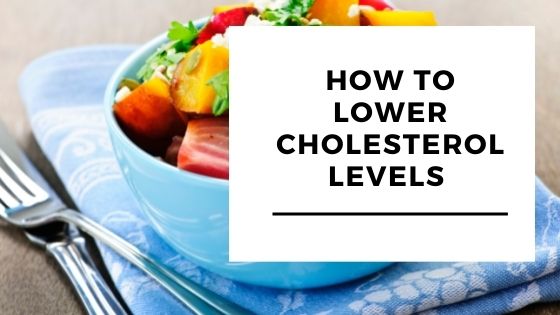What is cholesterol?
Cholesterol is a waxy chemical substance found in every cell of the body. It is a fat-like substance that moves in the blood. The liver produces about 80% of the cholesterol in the body. We can also get it from food. Cholesterol is only found in foods that come from animals like meat, poultry, fish, eggs, and dairy products.
The liver regulates the cholesterol in the blood. After a meal, cholesterol in the meal is absorbed in the small intestine, metabolized, and stored in the liver. The liver secretes cholesterol as the body needs it.
What is the role of cholesterol in the body?
Cholesterol performs many vital functions in the body. It is found in all the cell membranes of the body. Cell membranes are layers that protect the contents of the cell by acting as a gatekeeper to what things can enter or leave the cell. Cholesterol is also needed to make Vitamin D and some hormones like estrogen and testosterone.
Types of cholesterol
Cholesterol is transported in the blood by particles called lipoproteins. There are three types of lipoproteins that are categorized based on how much protein there is in relation to cholesterol.
Low-Density Lipoprotein
This is typically called "bad" cholesterol. It has more cholesterol than protein. This lipoprotein transports cholesterol throughout the body. They accumulate in the arteries clogging them and making them hard and stiff.
High levels of LDL can increase the risk of heart disease, stroke, and peripheral artery disease by forming cholesterol plaques on the walls of the arteries. As the plaques continue to build up, they narrow the arteries. This is called arteriosclerosis. This will also cause the blood flow to decrease.
If the plaque ruptures, this can cause a blood clot to form. This blood clot can prevent blood flow. If this clot occurs in any coronary arteries in the heart, it can cause a heart attack or myocardial infarction.
High-Density Lipoprotein
This is called good cholesterol. This is made up of higher levels of protein and lower levels of cholesterol. HDL picks up excess cholesterol and takes it back to the liver. Higher levels of HDL reduces the risk of heart disease.
Very Low-Density Lipoprotein
These are particles in the body that carry triglycerides. Triglycerides are important because most of the fat in the body exists as triglycerides. VLDL contains even lower levels of protein than LDL and has been associated with cholesterol plaque build-up.
How to test your cholesterol levels
Cholesterol levels are tested with a blood test. In most cases, you will need to fast for 12 hours before drawing blood for the test.
Accepted cholesterol levels
| Total Cholesterol (mg/dL) | |
|---|---|
| < 200 | Desirable |
| 200 to 239 | Borderline high |
| > 240 | High |
| HDL (mg/dL) | |
| < 40 | Low |
| > 60 | High |
| LDL (mg/dL) | |
| < 100 | Optimal |
| 100 to 129 | Near-Optimal |
| 130 to 159 | Borderline high |
| 160 to 189 | Near high |
| > 190 | High |
How to lower cholesterol by diet
Reduce saturated fats
Saturated fats are mainly found in animal foods, though a few plant foods are also high in saturated fats like coconut oil, palm oil, and palm kernel oil. Some sources of saturated fat are meat products (sausage, bacon, meat, hamburgers), whole and reduced-fat milk, butter and dairies desserts, pizza, cheese, and cookies.
The American Heart Association recommends limiting saturated fats to no more than 7% of calories.
Eliminate trans fats
Trans fats are made by heating liquid vegetable oils in the presence of hydrogen gas and a catalyst. Partially hydrogenated oils can withstand heating without breaking down making them ideal for frying foods. Trans fats are also found in beef fat and dairy fat in small amounts.
Trans fats lower HDL and raise LDL. They can also create inflammation and increase insulin resistance. Insulin resistance is when your body stops responding to insulin, causing an increase in blood sugar levels.
Increase unsaturated fats
Unsaturated fats are liquid at room temperature and are considered beneficial for health. They can improve blood cholesterol levels, reduce inflammation and stabilize heart rhythms. Unsaturated oils are found in food from plants such as vegetable oils, nuts and seeds.
There are two types of unsaturated fats:
Monounsaturated fats which are found in avocados, oils suchs as peanut oil. canola oil, nuts like almonds and seeds like sesame and spinach seeds.
Polyunsaturated fats which are found in walnuts, fish, flax seeds and canola oil.
Eat foods rich in omega 3 fatty acids
Increase your physical activity
Exercise helps boost your body's HDL (good fat).
Quit smoking
Smoking may lower your body's HDL(good fat).
Lose Weight
Drink alcohol in moderation
Drinking too much alcohol can increase your cholesterol level.






